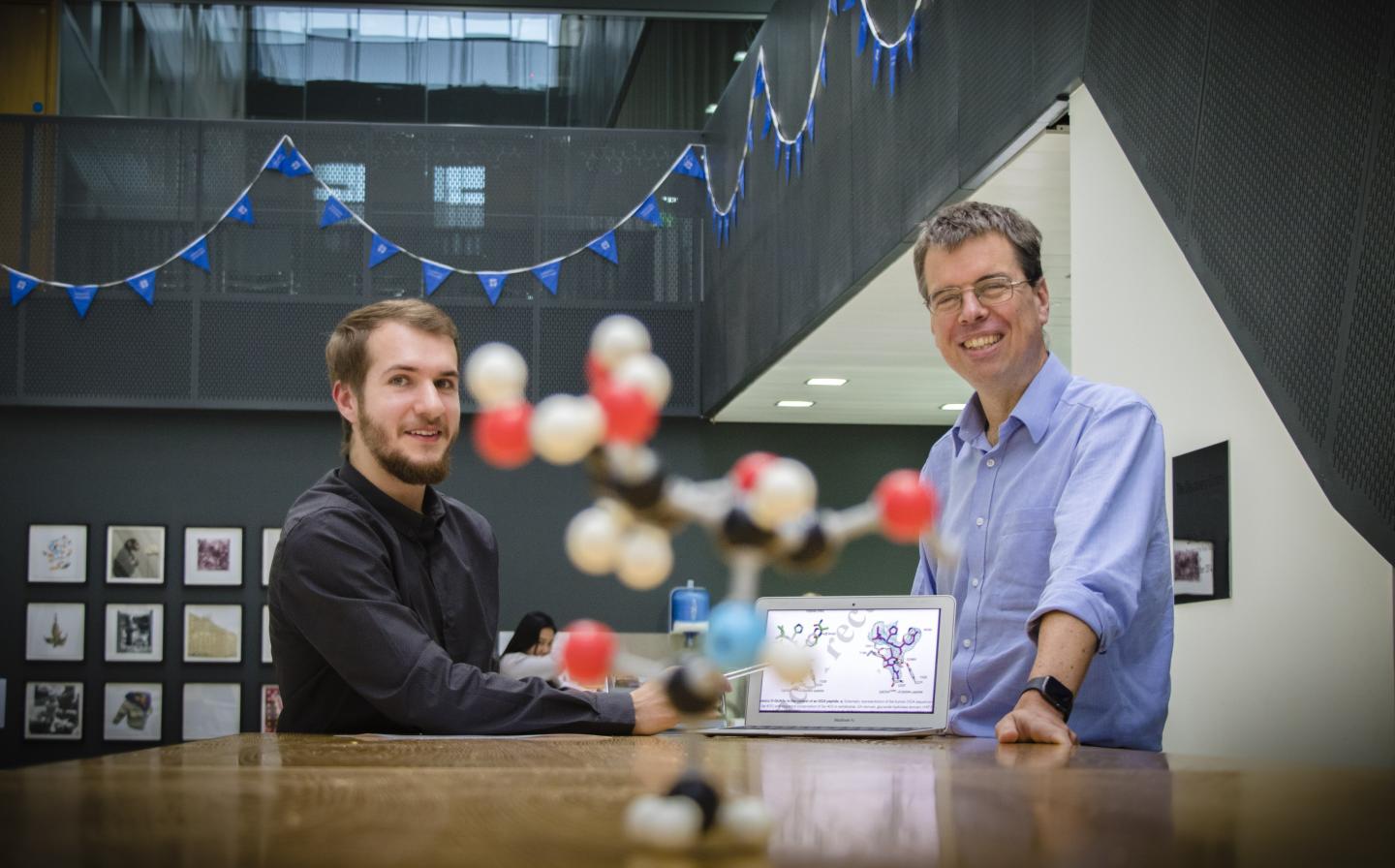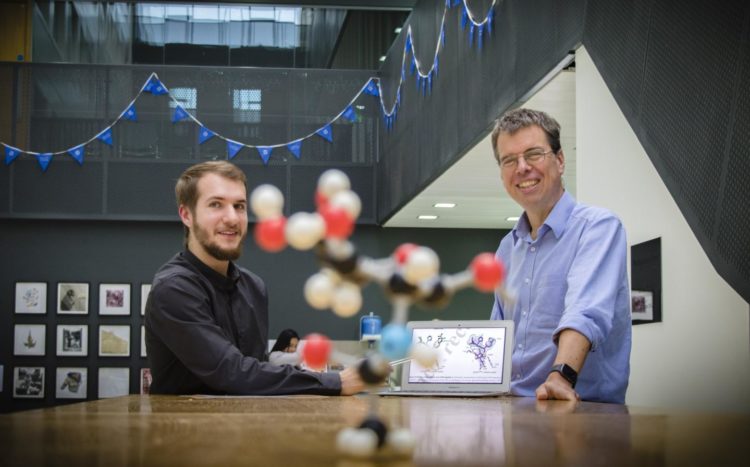A University of Dundee discovery has the potential to help scientists better understand neurological diseases such as Alzheimer’s and Parkinson’s

Credit: University of Dundee
A University of Dundee discovery has the potential to help scientists better understand neurological diseases such as Alzheimer’s and Parkinson’s.
Researchers, led by Professor Daan van Aalten in the University’s School of Life Sciences, have developed a new way to tag proteins in human cells with a small sugar molecule called O-GlcNAc. There are over 20,000 proteins in every human cell and approximately 20% of these contain O-GlcNAc.
The exact role played by O-GlcNAc remains a mystery but the molecule is found on proteins related to Alzheimer’s, Parkinson’s, motor neurone disease and intellectual disability.
This has led scientists to hypothesise that O-GlcNAc disruption is linked to these diseases, and increasing the levels of O-GlcNAc appears to be of therapeutic benefit. The Dundee team have developed a technique that enables them to permanently fix the sugar onto proteins where it naturally occurs at only low levels, allowing them to explore exactly what it does.
The researchers believe their method, combined with rapidly developing gene editing technology, could help understand the causes of diseases in which this sugar modification is disrupted.
“It is likely that perturbation of the O-GlcNAc sugar on just a single protein could have deleterious effects on healthy neurons and other cells but until recently, the research field lacked methods to investigate this,” explained Professor van Aalten. “We have now created the tool that enables us to do this.
“This allows us to ask questions about the role of specific sugar modifications that are dysregulated in cases of intellectual disability, as well as other brain diseases. Our technique has great potential to advance knowledge of O-GlcNAc-related disorders and help develop novel therapeutics.”
Dr Andrii Gorelik, the lead author of the research, discovered that the carbohydrate-protein linkage can be genetically recoded (altered) to permanently fix the sugar and enable it to be studied. This technology allows the O-GlcNAc found on a single protein within human cells and model organisms to be investigated and can now be applied to models of various neurological diseases.
Dr Gorelik said, “I had been working on this problem for several years when a few unexpected observations led me to establish this new method.
“Because the approach is so simple, it can be used in virtually any biomedical research lab worldwide, and, hopefully, result in exciting findings regarding the role of O-GlcNAc in normal physiology and disease.”
###
The research was supported by Wellcome Trust funding for Professor van Aalten and Dr Gorelik. The findings were published today in the journal Nature Structural and Molecular Biology.
Media Contact
Grant Hill
[email protected]
01-382-384-768
Related Journal Article
http://dx.





